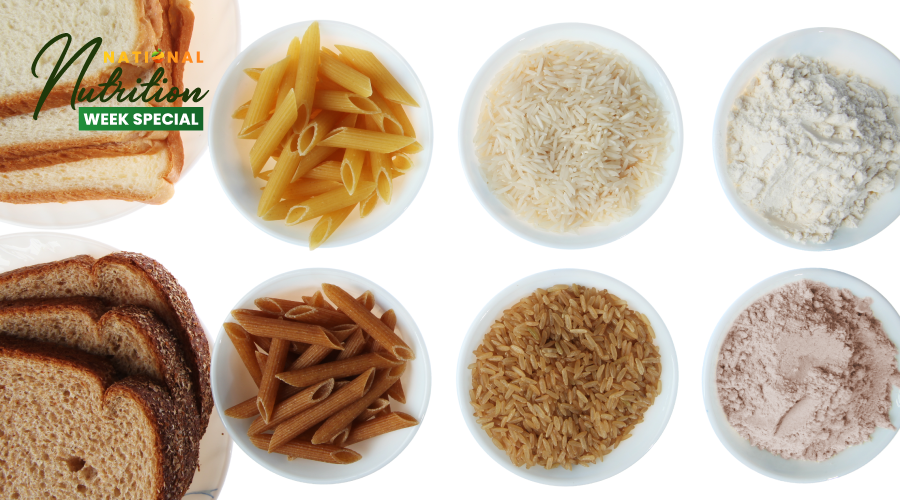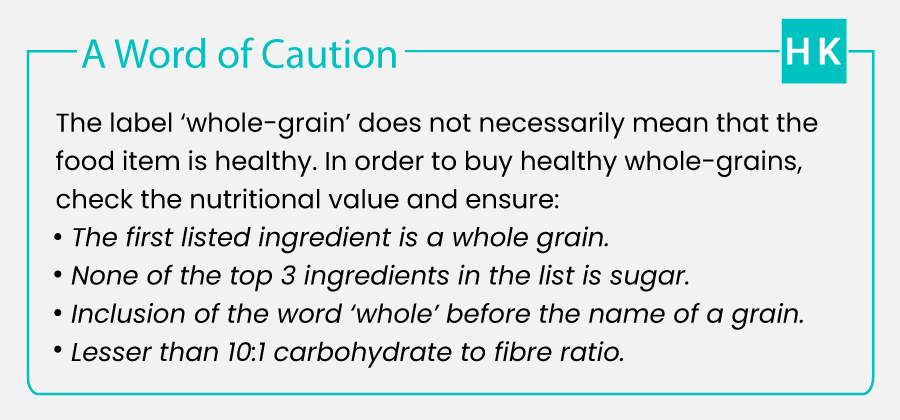

Carbohydrates are a type of macronutrients that act as a fuel for the body. Based on their molecular structure, carbohydrates can be divided into two types: simple and complex carbohydrates. Both can be termed as sources of energy for the body. Simple carbohydrates are more of an instant source and provide short bursts of energy. The body takes longer to digest complex carbohydrates, which makes them a longer-lasting source of energy.
Sugars, starches, and fibre are the types of carbohydrates, or carbs. They are processed by the body and converted into glucose, which in turn acts as an energy source for the cells, tissues, and organs. Glucose is either used immediately or stored in the liver or muscles for later use.
Understanding Simple and Complex Carbohydrates
Simple carbohydrates
Like the name suggests, simple carbohydrates have a simple molecular structure, that is, they may either be composed of a single sugar molecule (called monosaccharides) or two simple sugars bonded together (called disaccharides). Glucose, fructose, and galactose are monosaccharides, whereas Sucrose (glucose + fructose), Lactose (glucose + galactose), and Maltose (glucose + glucose) are disaccharides.
Natural sources of simple carbohydrates can be certain fruits and vegetables as well as milk and milk products. Most of the simple carbs are added to food and are mostly sugars. Simple carbohydrates examples may include processed food items such as white sugar, brown sugar, soda, fruit juice concentrate, syrups, candies, baked goods, and so on. Not all simple carbohydrates are healthy for the body.
Simple carbohydrates bring about a sudden spike in the blood sugar levels, and are a short-lasting source of energy. Consumption of processed simple sugars (like chocolates or sodas) may lead to reduction in alertness or stimulate fatigue after about an hour of consumption. Simple carbohydrates like fruits and vegetables contain dietary fibre and are also rich in micronutrients like vitamins and minerals. Lactose in milk and milk products provides the additional nutritional benefits of protein, calcium, and vitamin D.
Complex Carbohydrates
Complex carbohydrates are composed of longer and more complex chains of sugar molecules called oligosaccharides and polysaccharides. Along with calories for energy, they provide fibre, vitamins, minerals, and phytonutrients that ensure additional health benefits.
Major sources of complex carbohydrates can be whole grain foods, starchy vegetables, legumes, and beans and even some highly refined starches such as cakes, cereal, white breads, and so on. The lesser a complex carbohydrate is processed or refined, the healthier it is. The most nutritious form of complex carbohydrates are whole-grain foods. They contain fibre, vitamin B and E, phytochemicals, and healthy fats.

Complex carbohydrates are higher in fibre, and hence take longer to digest. They also satiate the gut for longer durations, thereby helping hunger control and eventually weight loss. Fibre also helps keep cholesterol in check and maintains regular and healthier bowel movements. Foods like cereal, corn, peas, oats, and rice are rich in starch. These foods provide vitamins and minerals to the body and aid digestion.
Simple and Complex Carbohydrates: Which is Better?
Simple and complex carbohydrates both have healthy as well as unhealthy types. Complex carbs are definitely a better source of energy than simple carbs because of the gradual increase in the blood sugar level, thereby providing longer durations of energy. The complete nutritional profile as well as the type of food containing a particular set of carbs determines which is better.
Glycemic Index and Glycemic Load (measures to gauge the effect of carbohydrates on blood sugar) for both simple and complex carbohydrates should be calculated to determine the suitable and appropriate amount of consumption.
Choosing the Right Food with Carbs
It is important to check the Nutrition Facts label on a food item in order to understand the exact blend of simple and complex carbohydrates in addition to other nutrients you are going to consume. This will help you know not only the amount of carbohydrates present but also the entire nutritional value of the same.
You should look for ingredients such as whole grains, whole wheat, vegetables or fruits in place of added sugars like high-fructose corn syrup, maltose, brown sugar that should be avoided.

Content listed as whole fruit is healthier to consume when compared with canned fruit in syrup or frozen/ dried fruit – these come with high amounts of added sugars.
Study the entire breakdown of simple and complex carbohydrates and sugars mentioned and buy the product only if the same aligns with your nutritional needs and goals.

Conclusion
There may be some weight loss programs that discourage the consumption of simple and complex carbohydrates. Carbohydrates, if consumed in the right proportions with proteins and fats, can prove to be quite beneficial for the body. Low-carb diets are believed to be an aid when losing weight but they may not be suitable for the long-term.
This also brings us to the myth stating that carbohydrates lead to obesity. The statement may not be entirely true. Both simple and complex carbohydrates may in fact help you lose weight if consumed in moderation and in the unrefined or unprocessed form.




